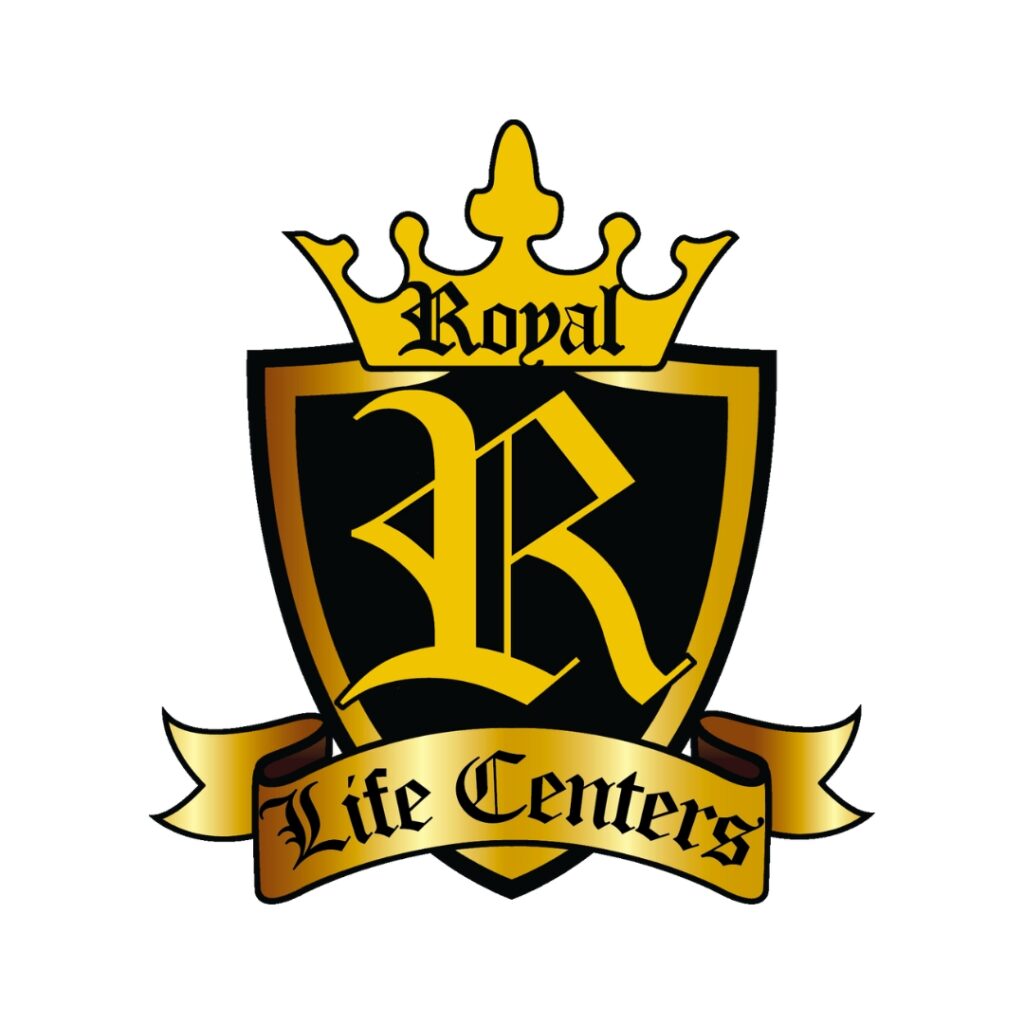If you have or are currently experimenting with Molly, it is important to understand what this substance is and how it can affect you. If you are asking yourself questions such as “Is Molly addictive?” or “How long does Molly last?”, this can be a sign that your use has already become problematic. Royal Life Centers at Cascade Heights can help you understand your Molly abuse and provide the support you need to overcome addiction.
What Is Molly?
Molly is slang for the drug MDMA (3,4-methylenedioxymethamphetamine). This drug is also commonly referred to by the name ecstasy. It is a synthetic drug that acts as a stimulant and hallucinogen.
In many cases, what is sold as “Molly” may not actually be pure MDMA. In fact, it often will contain other substances, such as methamphetamine, amphetamines, or even bath salts. These substances can have dangerous and unpredictable effects.
As of 2015, 18.3 million people aged 12 or older reported having used ecstasy at some point in their lifetime. This use seems to be particularly prevalent among teenagers. This may be because Molly is fairly easy to access and often underestimated in terms of danger and risk of addiction.
Are Molly and Ecstasy the Same Thing?
While Molly and ecstasy are not the same thing, these terms are often used interchangeably. Generally, molly is believed to refer to pure MDMA in powder or crystal form. Ecstasy, on the other hand, refers to the pill form of MDMA, which is often laced with other substances.
Despite these differences, both Molly and ecstasy carry significant health risks, including:
- Hyperthermia (excessive body temperature)
- Dehydration
- Heart problems
- Liver damage
- Seizures
- Death
Other Names for Ecstasy
Ecstasy has many other nicknames which may be used in different settings and contexts. It is important to note that these are just some of the many street names for ecstasy, but may include:
- Adam
- Beans
- Biscuit
- Clarity
- Disco Biscuit
- E
- Eve
- Go
- Hug Drug
- Lover’s Speed
- MDMA
- Peace
- STP
- X
- XTC
Can You Overdose on Molly?
While less common than with other drugs, high doses of MDMA can lead to an overdose. How much molly to overdose can vary depending on your individual physiology. This risk is significantly increased when MDMA is combined with other substances, such as alcohol, cocaine, or other drugs. Molly symptoms of overdose typically include:
- High body temperature (hyperthermia)
- Rapid heart rate and irregular heartbeat
- Seizures
- Confusion and disorientation
- Loss of consciousness
- Severe dehydration
- Kidney failure
- Liver damage
If you suspect someone is experiencing an MDMA overdose, it is important to seek immediate medical attention. You should call your local emergency hotline as soon as you notice any concerning symptoms, as overdosing on MDMA can be fatal.
Addiction
Are you struggling with an addiction to substances like drugs and alcohol?
Royal Life Centers at Cascade Heights Recovery is here to help you recover. Because we care.
How Long Does Molly Last?
When someone takes Molly, they may begin to experience effects as soon as within 30-45 minutes of ingestion. These effects will generally peak within 1-2 hours and can last anywhere from 3 to 6 hours.
There are several factors that can influence the duration of effects, including:
- Dosage: Higher doses generally produce longer-lasting effects.
- Purity: The purity of the MDMA can significantly impact the duration and intensity of the effects.
- Individual factors: Factors such as body weight, metabolism, and individual sensitivity can also influence how long the effects last.
It is also important to keep in mind that traces of Molly can remain in your hair, blood, and urine for several days after use. This means it can be detected on drug tests and, as an illegal substance, this can have legal repercussions and other negative consequences.
What Is Coming Down from Molly Like?
“Coming down” from Molly (MDMA) is often described as a period of unpleasant after-effects that occur after taking this drug. This come-down period can last for several hours or even days. These after-effects are also sometimes referred to as an “MDMA hangover.”
There are several common symptoms that can occur with an MDMA comedown. These can include:
- Fatigue
- Depression
- Anxiety
- Irritability
- Difficulty concentrating
- Loss of appetite
- Sleep problems
- Muscle aches and pains
- Chills or sweating
- Nausea or vomiting
What Are the Signs of Molly Abuse?
Recognizing the signs of Molly use and abuse can be crucial for helping someone get the help they need. Some of the most common signs and symptoms of an addiction to molly include:
Behavioral Changes:
- Increased Secrecy: Becoming secretive about their whereabouts, friends, and activities.
- Changes in Social Behavior: Spending more time with new friends, withdrawing from family and old friends, or exhibiting unusual or risky behavior.
- Financial Problems: Unexplained financial difficulties, borrowing money frequently, or stealing.
- Changes in Appearance: Neglecting personal hygiene, sudden weight loss or gain, or unusual changes in appearance.
- Changes in School or Work Performance: Deteriorating grades, increased absences, or difficulty concentrating.
- Legal Issues: Getting into trouble with the law, such as possession or distribution of drugs.
Psychological Signs:
- Mood swings: Experiencing rapid and unpredictable shifts in mood, from euphoria to irritability or depression.
- Anxiety and paranoia: Feeling anxious, restless, and suspicious of others.
- Depression: Feeling sad, hopeless, and lacking motivation.
- Difficulty sleeping: Insomnia or difficulty staying asleep.
- Memory problems: Difficulty concentrating, remembering things, or making decisions.
If you recognize any of these signs in yourself or a loved one, it is important to seek help as soon as possible. Molly is a dangerous drug, but with the right support and proper treatment, recovery is possible.
What Is Molly Abuse Treatment Like?
Treatment for Molly abuse typically involves a combination of therapeutic interventions and support services. There are several therapies that can be used to help treat molly abuse and addiction, including:
- Cognitive-behavioral therapy (CBT): This therapy can help individuals identify and change negative thought patterns and behaviors associated with their drug use.
- Group Therapy: This can provide a supportive environment where individuals can share their experiences. In doing so, they are able to learn coping skills and receive support from others who are also in recovery.
- Support Groups: Peer recovery groups like Narcotics Anonymous (NA) provide a peer-support environment for those struggling with substance abuse.
- Medications: Certain medications can be used to address any underlying mental health conditions such as anxiety or depression.
These are just a few of the treatment options that may be used to treat Molly addiction. The exact tools that will be used to address your Molly abuse can vary based on your specific circumstances and recovery needs.
Molly Abuse Treatment at Royal Life Centers
Not all treatment centers are the same. Royal Life Centers at Cascade Heights offers a full continuum of Molly detox, holistic addiction treatments, and proven recovery programs. Our recovery programs offer a comprehensive approach to recovery, combining various research-based and holistic treatment interventions. MDMA’s effects increase the risk of ecstasy addiction and abuse. Finding the right recovery center for substance abuse treatment and behavioral health is easy when you contact the team at Royal Life Centers. Our addiction treatment centers use a dual diagnosis treatment approach, which includes mental health treatment alongside treatment for substance use disorders. We have a therapy program that can work for you, so verify your insurance with our admissions team and get started with drug abuse rehab today.
We work with you one-on-one to build a personalized treatment plan that caters to each of your recovery needs. If you are ready to start your recovery and move on from the effects of MDMA, we are here to help. Reach out to us today to learn more about how our behavioral therapy and addiction treatment program can be a good fit for you.







